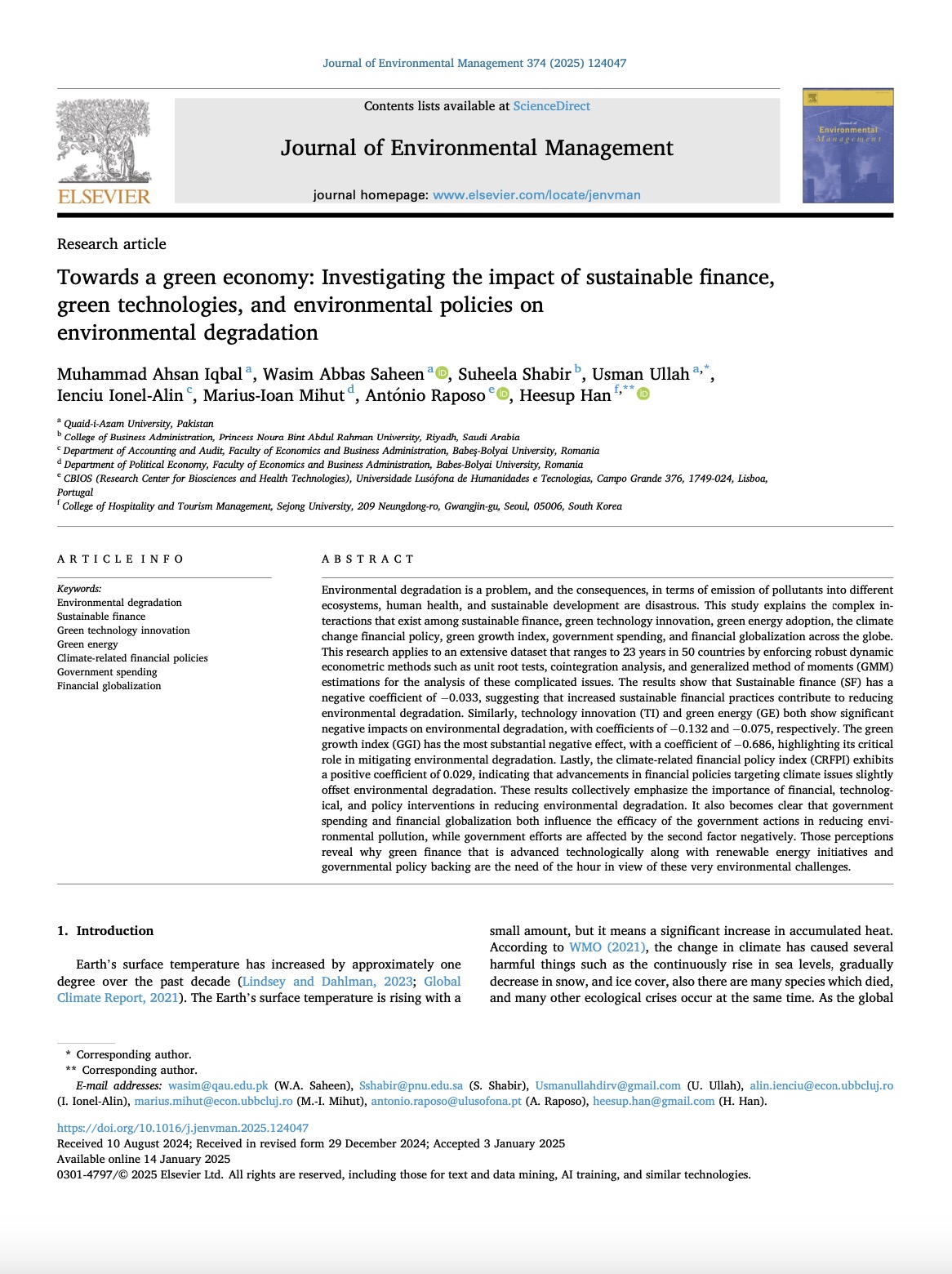|
|
|
Ahsan Iqbal, M.;Saheen, W.A.; Shabir, S.; Ullah, U.; Ienciu, I.A., Mihut, M.I.; Raposo, A. & Han, H. (2025) Journal of Environmental Management [D. Conexe, Q1]
Autor:
Cristina Alexandrina Stefanescu
Publicat:
16 Ianuarie 2025
Ahsan Iqbal, M.;Saheen, W.A.; Shabir, S.; Ullah, U.; Ienciu, I.A., Mihut, M.I.; Raposo, A.& Han, H. , Towards a green economy: Investigating the impact of sustainable finance, green technologies, and environmental policies on environmental degradation, Journal of Environmental Management , 374, 124047
DOI: https://doi.org/10.1016/j.jenvman.2025.124047
✓ Publisher: Elsevier
✓ Categories: Environmental Sciences
✓ Article Influence Score (AIS): 1.290 (2023) / Q1 in Environmental Sciences
Abstract: Environmental degradation is a problem, and the consequences, in terms of emission of pollutants into different ecosystems, human health, and sustainable development are disastrous. This study explains the complex interactions that exist among sustainable finance, green technology innovation, green energy adoption, the climate change financial policy, green growth index, government spending, and financial globalization across the globe. This research applies to an extensive dataset that ranges to 23 years in 50 countries by enforcing robust dynamic econometric methods such as unit root tests, cointegration analysis, and generalized method of moments (GMM) estimations for the analysis of these complicated issues. The results show that Sustainable finance (SF) has a negative coefficient of −0.033, suggesting that increased sustainable financial practices contribute to reducing environmental degradation. Similarly, technology innovation (TI) and green energy (GE) both show significant negative impacts on environmental degradation, with coefficients of −0.132 and −0.075, respectively. The green growth index (GGI) has the most substantial negative effect, with a coefficient of −0.686, highlighting its critical role in mitigating environmental degradation. Lastly, the climate-related financial policy index (CRFPI) exhibits a positive coefficient of 0.029, indicating that advancements in financial policies targeting climate issues slightly offset environmental degradation. These results collectively emphasize the importance of financial, technological, and policy interventions in reducing environmental degradation. It also becomes clear that government spending and financial globalization both influence the efficacy of the government actions in reducing environmental pollution, while government efforts are affected by the second factor negatively. Those perceptions reveal why green finance that is advanced technologically along with renewable energy initiatives and governmental policy backing are the need of the hour in view of these very environmental challenges.

inapoi la stiri  vezi evenimentele
vezi evenimentele  home
home 
|